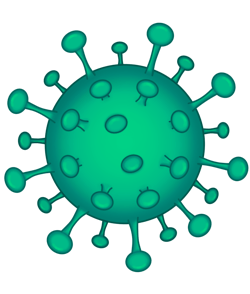NIH to support new ways to address COVID-19 testing and surveillance
The National Institutes of Health (NIH) has awarded over $107 million to support new, non-traditional approaches and reimagined uses of existing tools to address gaps in COVID-19 testing and surveillance, according to a press release.
The program also will develop platforms that can be deployed in future outbreaks of COVID-19 and other infectious diseases. A part of the Rapid Acceleration of Diagnostics (RADx) program will support 49 research projects and grant supplements at 43 institutions across the United States. It will focus on non-traditional viral screening approaches, such as biological or physiological markers, new analytical platforms with novel chemistries or engineering, rapid detection strategies, point-of-care devices, and home-based testing technologies.
The grants will support new approaches to identifying and tracking the current SARS-CoV-2 virus, which causes COVID-19. Examples of these projects include:
• Development of an electrochemical biosensor in two detection devices, a diagnostic breathalyzer for instant detection of SARS-CoV-2, and an airborne detector for real-time, continuous surveillance of a large space.
• Development of novel, safe and effective biosensing and detection technologies to spot signatures of COVID-19 from human skin or mouth.
• Development of an innovative platform that integrates biosensing with touchscreen or other digital devices to achieve automatic, early detection and tracing of SARS-CoV-2 in real-time.
• Development of a novel test to independently assess smell and taste function in individuals who are at high risk for contracting COVID-19.
• Development of wastewater technologies and data collection methods for detecting and estimating SARS-CoV-2 community infection levels, which can offer advanced knowledge of community spread and allow for targeted public health protection measures.
• Implementation of devices with integrated artificial intelligent systems for the detection, diagnosis, prediction, prognosis and monitoring of COVID-19 in clinical, community and everyday settings.
• Characterization of the spectrum of SARS CoV-2 associated illness, including the multisystem inflammatory syndrome in children (MIS-C).
• Development of biomarkers and biosignatures for an algorithm utilizing artificial intelligence to predict the long-term risk of disease severity after a child is exposed to SARS-CoV-2.

